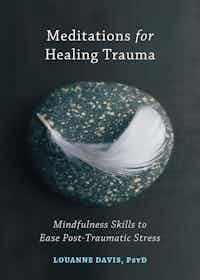A physician recently asked one of my colleagues who teaches mindfulness classes to explain what it is in one sentence. When my colleague shared this with me, my immediate reaction was one of irritation and surprise. (Yes, mindfulness practice can help us become more aware of our human tendency to react emotionally so that we have an opportunity to choose how we respond in the moment. No, having a mindfulness practice does not stamp out our emotions or enable us to respond perfectly to life challenges). In that particular moment, irritation was clearly winning. (Would I ever be so insensitive as to ask physicians to explain complex concepts in their field of expertise in a single sentence?)
My reactions quickly morphed into a feeling of helplessness. Defining mindfulness in one sentence seemed in that moment to be a truly impossible task. Apparently, outside of my awareness, my mind had already taken on this problem and was chewing on it. About a week later, I woke up suddenly and very early one morning. I immediately noticed that my thoughts were spinning around phrases that described mindfulness. One particular sentence caught my attention, so I wrote it down:
Mindfulness involves cultivating particular qualities of attention so that we can access inner resources to enhance our innate capacity for resilience, health, and contentment.
I really liked this one-sentence definition of mindfulness and so did my colleague.
Defining mindfulness in a simple way that conveys both the essence of mindfulness and its benefits is challenging. Why? Because mindfulness is a process of intentionally engaging with and growing our ability to pay attention in a specific way. Therefore, it is best understood through the practice of it rather than talking about it. It’s a simple concept with a lot of depth. We humans often default to thinking and talking about something that is new and different and frankly seems strange, rather than immediately engaging in it. This cautious approach is probably a way we protect ourselves from potential harm and is therefore useful, except that we tend to become paralyzed by our process of analysis. In his recent work, Jon Kabat-Zinn explains that attempting to understand mindfulness by talking about it is like trying to understand eating by listening to someone describe a particular food or by reading a menu. He points out that no one can eat for us. We must eat to nourish our own bodies. Thinking about eating of course can be helpful, but is in no way a substitute for our direct sensory experience of eating.
Thinking about eating can be helpful, but is not a substitute for our direct sensory experience of eating.
In a time when we engage with the world more and more through technology rather than through direct sensory experience, mindfulness is a powerful vehicle to connect more fully and deeply in the moments of our daily lives. Of all the research that has been published on the many benefits of mindfulness, one in particular stands out for me. Studies have shown a link between being fully engaged in the present moment and feeling happy.
See also: 5 Tips for Learning Mindfulness for Twenty-Somethings
Louanne Davis, PsyD, is a clinical psychologist in Indianapolis and associate scientist in clinical psychology in the department of psychiatry at the Indiana University School of Medicine. She is certified by the University of Massachusetts Medical School to teach mindfulness-based stress reduction (MBSR). She is the author of Meditations for Healing Trauma.



 Building Self-Acceptance
Building Self-Acceptance